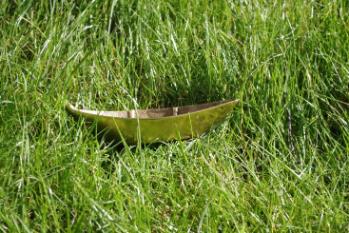Teaching

Introduction to World Literature in English (English 2122) addresses contemporary literature consciously pre-occupied with global cultural identities and practices. The writers studied address transnational issues such as migration, environmental and human rights, travel and tourism, and the legacies of European colonialism.
Literature and Environment: Writing Climate Change (English 3009) addresses relationships between humans and the nonhuman world. The course examines the ways in which differently located creative writers of fiction, non-fiction, poetry and drama are currently imagining the implications for people and the planet of anthropogenic-induced climate crisis. It is especially interested in how the phenomenon of climate change challenges predominant human notions of time and space, as well as flawed assumptions about nature’s role as a passive, endlessly exploitable backdrop. Questions of social and environmental justice, and literature’s capacity to prompt meaningful change, are front and centre in English 3009.
Empire and After (English 3160) examines writing which responds to the short and long-term consequences of historical British imperialism. The course looks at literary responses from around the world to questions like: What happens when cultures collide? How do people deal with the fracturing of their languages, their philosophies, their economies? What is a hybrid identity? How do new nations emerge? How important is a sense of home?
Australian Literature (English 3161) focuses on contemporary writing by established Australian authors. It pays particular attention to the after effects of colonialism and the formulation of national identities. Set texts have included work by David Malouf, Amanda Lohrey, Peter Carey and Christos Tsiolkas.
Imagining Islands (English 4819) Figured as utopias and dystopias, paradises and penitentiaries, islands have long proved a rich and malleable imaginative terrain for creative writers. This seminar course examines how the space is constructed both in canonical island texts including Daniel Defoe's Robinson Crusoe and Shakespeare's The Tempest, as well as in contemporary writing by authors such as J.M. Coetzee and Wayne Johnston. Because islands are quintessential colonial spaces, the theoretical framework for the course is drawn primarily, but not exclusively, from postcolonial studies. Our broad aim is to focus on islands both as sites of lived histories, as well as suggestive grounds for shifting metaphoric constructions.
Petrofictions (English 7087) Informed by the rapidly emerging field of the Energy Humanities, this graduate course examines literary figurations of the most important energy source of the twentieth and (so far) twenty-first centuries: petroleum. Students consider texts from around the world in which oil and its industries are an explicit concern. However, thinking about oil also necessitates looking beyond just the more visible (often intensely contested and violent) aspects of its production. Thus, we also read work that addresses the ways in which petroleum is entrenched within our everyday lives. In addition, we think about texts which, taking seriously the imperative of climate change, speculate about new modes of human existence after oil. Collaborative work is an important element of this course. Former Petrofictions students have collectively produced a "Petrofictionary."